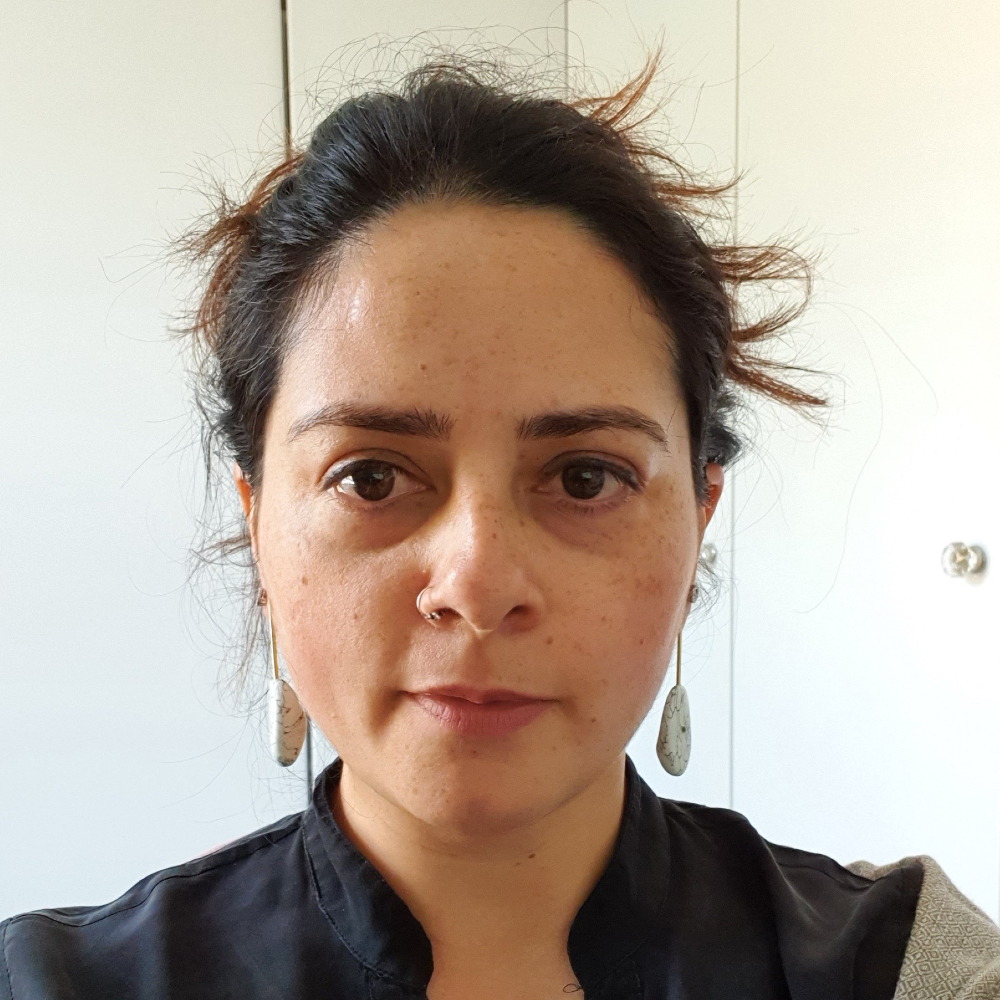Professor Anuj Kapilashrami

-
Email
a.kapilashrami@essex.ac.uk -
Location
4SW.6.27, Colchester Campus
-
Academic support hours
Wednesdays 12-130pm
Profile
Biography
Anuj Kapilashrami is an Interdisciplinary social scientist trained in Sociology and Public health. She is Professor in Global Health Policy and Equity and Director of the Centre for Global Health & Intersectional Equity Research at University of Essex. Her work lies at the intersections of health policy and development praxis, with particular interest in the social and structural determinants of health, and the rights and equity implications of global public health policy and governance. She has longstanding research interest and experience that spreads over two decades and spans across both academia and civil society/ development sector in South Asia and the UK. Her recent scholarship advances intersectionality - conceptually and methodologically- and its application in understanding health inequalities and structural determinants of health and gender-violence. Her current research examines migration as a structural determinant of health, where she adopts an intersectionality lens to reveal how intersecting gender and other social inequalities (race/ ethnicity, indigeneity, sexuality) shape experiences of syndemics among migrants in precarious contexts. A related area of her study and praxis is participatory governance, where she leads a programme of work on community and stakeholder participation in priority setting, and the role and impact of social movements in health governance. She has developed intersectionality informed guidance for involving communities in the design of benefit packages for WHO EMRO and for health interventions with local health authorities in the UK. She has published widely on health inequalities and other areas of health policy and systems (e.g. governance of global health, Public-private partnerships, social determinants) in leading journals. She has published the first edited collection on Global Health Governance and Commercialisation of Public Health in India with Routledge, and a new book with Policy Press on Advancing Health Rights & Tackling Inequalities. The book adopts a decolonial intersectional justice lens to examine participation, its history in community development, and application to public health, and share approaches, tools, learnings from diverse geo- political, socio-economic contexts. Anuj is passionate about social justice and transforming classrooms via public engagement activities. This passion and commitment to human rights and social justice informs her longstanding association with the People’s Health Movement (in India and the UK including as founding Chair of the Scottish chapter). She serves as Chair of Medact, a UK based charity of health professionals with the goal of advancing health justice and peace, and is a trustee of Health Poverty Action, UK. Prior to joining Essex, Anuj was Senior Lecturer at the University of Edinburgh and Queen Mary University. She continues her association in the capacity of Senior Research Associate for the Global Health Governance Programme at the Usher Institute of the University of Edinburgh. She serves on advisory and funding committees of the NIHR, Wellcome Trust (Social Sciences Discovery Advisory Group) and regularly reviews for MRC, UKRI and other funding councils. Affiliations & Board positions Co-Chair: Gender & Rights Advisory Panel, Human Reproduction Programme/ Department of Sexual & Reproductive Health Rights (SRHR) at the World Health Organisation Chair, Medact, a UK based charity and network of health professionals working for health justice and peace, serves on the Board of Health Poverty Action; as and is the founding Chair of the Migration Health South Asia network. Chair, NIHR Global Health Research Training Steering Committee
Qualifications
-
PhD Queen Margaret University, (2010)
-
MSc Sexual & Reproductive Health Research London School of Hygiene & Tropical Medicine, (2003)
-
MA Sociology Annamalai University, (2002)
Appointments
University of Essex
-
Director, Centre for Global Health & Intersectional Equity Research (1/12/2023 - present)
Research and professional activities
Current research
From the margins: Exploring Low-income Migrant Workers' Access to Basic Services and Protection in the context of India's Urban Transformation [ESRC-ICSSR Urban Transofrmations call]
Indian cities attract a considerable number of low-income migrants from marginal rural households experiencing difficult economic, political and social conditions at home who migrate in search of livelihoods and security. These migrants come from around the country as well as across the border from Nepal, Bangladesh and Myanmar to work in low-income manual occupations in a range of small-scale petty trade, service sector work, transport and construction work. Low-income migrants live and work in precarious conditions and are often denied basic amenities and fundamental rights. Poorly-paid intermittent and insecure jobs make them vulnerable to abuse, extortion or bribery. Their marginal position entails poorer access to health care provisions and other determinants of health than general (non-migrant) populations, thereby enhancing their vulnerability to ill-health, abuse and ill treatment whilst simultaneously compromising their ability to access protection, legal support or redress, and forms of accountability. In this context, this ESRC-ICSSR funded joint research project (with University of Edinburgh, University of Delhi, University of Essex & North East Network) examines what India's urban transformation means for low-income migrants, their inclusion and social justice by exploring in two rapidly growing urban cities- Jalandhar & Guwahati: i) low-income migrants' views on transformations in Indian cities, and their entitlements, claim-making processes and attempts to protect their own health in a context of poor living and working conditions. ii) the experience of violence and exclusion and how they protect themselves from various forms of violence; iii) the legal, developmental, humanitarian and human rights responses to low-income migrants in Indian cities.
Engaging Communities in decision making for benefit packages & attainment of Universal Health Coverage
Review of evidence, design and implementation of conceptual model and operational guidance for WHO EMRO to engage communities and other stakeholders in designing benefit packages and UHC plans
Assessment of the impact of COVID-19 responses on vulnerable and marginalised groups
Involves examination of disproportionate burden of COVID on marginalised populations in Europe and internationally (South Asia) with a particular focus on human rights and intersectional equity implications of policy responses to COVID-19.
Examining syndemics of mental health and violence among migrants in precarious contexts
Social participation for Universal health coverage - evidence-informed NetWorks Advancing Inclusion (SUNWAI)
Starting in 2025, SUNWAI, supported by the NIHR Global Health, will enhance social participation mechanisms to achieve Universal Health Coverage (UHC). Targeting underserved and transgender populations in Vietnam, India, and Thailand, the project explores the contexts, mechanisms, outcomes, and costs of involving key populations in health reform initiatives. The project fosters inclusive participation by establishing peer, policy, and public networking dialogues at local, national, and global levels. It also develops a learning system for social participation and employs realist approaches to evaluate the project's impact on health system processes. Furthermore, SUNWAI explores patterns in social participation initiatives by integrating legal, policy, and economic evaluations to design cost-effective inclusion strategies. Finally, the project implements participatory action research cycles to co-create tools and guidance for enhancing social participation in UHC. SUNWAI will generate scalable insights and actionable tools that advance global equity and sustainability in health systems.
More information about this project
Conferences and presentations
Towards a Paradigm Shift- Integrating intersectional equity and systems thinking in strategic health workforce planning and decision making
Invited presentation, WHO Symposium on Sustainable Health and Care Delivery Transformation: Modelling and Optimizing the Health and Care Workforce: Looking to the Future, Copenhagen, 28/4/2025
Why engage communities in priority setting for sustainable health benefits package design?
Satellite Session at the Seventh Global Symposium on Health Systems Research, Health Systems Global, Bogota, Colombia, 31/10/2022
Teaching and supervision
Current teaching responsibilities
-
Health Inequalities and Intersectionality 101 (HS856)
-
Introduction to Global Health (HS887)
Current supervision
Publications
Journal articles (52)
Johnson, LL., Wong, G., Kuhn, I., Martin, GP., Kapilashrami, A., Lennox, L., Black, GB., Hill, M., Swiers, R., Mahmood, H., Jones, L., Beng, J. and Ford, J., (2025). A realist review of how, why, for whom and in which contexts quality improvement in healthcare impacts inequalities. BMJ Quality & Safety. 34 (8), 537-546
Chadd, K. and Kapilashrami, A., (2025). Operationalising participatory action research to evaluate early years’ population health services. BMC Public Health. 25 (1), 947-
Koly, KN., Muzaffar, R., Nessa, Z., Billah, A., Rasheed, S. and Kapilashrami, A., (2025). Household-related stress, intimate partner violence and mental health: exploring the syndemic in urban slum women in Bangladesh during Covid-19 pandemic. International Journal for Equity in Health. 24 (1), 207-
Aziz, R., Kapilashrami, A. and Majdzadeh, R., (2025). Mind the ‘inequality’ gap: intersectionality-informed scoping review of inequalities and adverse experiences of health and care workers globally. BMJ Global Health. 10 (8), e016795-e016795
Kapilashrami, A., Kokkinidis, G., Checchi, M. and INNOVATE Consortium, (2025). Rethinking mental healthcare: operationalising intersectionality through a community-driven social clinic model.. Journal of Global Health. 15, 03034-
Tamrat, T., Malpani, R., Mengistu, S., Kovacs, A., Zhao, Y., Kapilashrami, A., Maleche, A., Pujari, S., Reis, A. and Say, L., (2025). Beyond no harm: Advancing research on artificial intelligence for sexual and reproductive health and rights. npj Women's Health. 3 (1), 65-
Hunt, P. and Kapilashrami, A., (2025). Accountability from Below. Health and Human Rights. 27 (2), 1-8
McCoy, D., Kapilashrami, A., Kumar, R., Rhule, E. and Khosla, R., (2024). Developing an agenda for the decolonization of global health.. Bulletin of the World Health Organization. 102 (2), 130-136
Pernitez-Agan, S., Bautista, MAC., Lopez, J., Sampson, M., Kapilashrami, A., Garabiles, M., Hui, C., Babu, B., Aziz, R., Jordan, LP., Mondres, TRU., Lebanan, MA. and Wickramage, K., (2024). Expert consensus on a protocol for conducting bibliometric analysis of scientific articles on global migration health (GMH). BMJ Open. 14 (6), e080729-e080729
Aziz, R., Kapilashrami, A. and Majdzadeh, R., (2024). Exploring the inequalities experienced by health and care workforce and their bases - A scoping review protocol.. PLoS One. 19 (4), e0302175-e0302175
Gogoi, M., Qureshi, I., Chaloner, J., Al-Oraibi, A., Reilly, H., Wobi, F., Agbonmwandolor, JO., Ekezie, W., Hassan, O., Lal, Z., Kapilashrami, A., Nellums, L., Pareek, M. and UK-REACH Study Collaborative Group Members, (2024). Discrimination, disadvantage and disempowerment during COVID-19: a qualitative intrasectional analysis of the lived experiences of an ethnically diverse healthcare workforce in the United Kingdom.. International Journal for Equity in Health. 23 (1), 105-
Arnull, LG., Kapilashrami, A. and Sampson, M., (2023). Visualizing patterns and gaps in transgender sexual and reproductive health: A bibliometric and content analysis of literature (1990 – 2020). International Journal of Transgender Health. 24 (4), 381-396
Kapilashrami, A. and John, EA., (2023). Pandemic, precarity and health of migrants in South Asia: Mapping multiple dimensions of precarity and pathways to states of health and well-being. Journal of Migration and Health. 7, 100180-100180
Kapilashrami, A., Razavi, D. and Majdzadeh, R., (2023). Enhancing Priority-Setting Decision-Making Process Through Use of Intersectionality for Public Participation. International Journal of Health Policy and Management. 12 (1), 8095-8095
Arthur, M., Saha, R. and Kapilashrami, A., (2023). Community participation and stakeholder engagement in determining health service coverage: A systematic review and framework synthesis to assess effectiveness.. Journal of Global Health. 13, 04034-
Kapilashrami, A. and Aziz, R., (2023). Pandemic preparedness with 20/20 vision: Applying an intersectional equity lens to health workforce planning.. International Journal of Health Planning and Management. 38 (5), 1117-1126
Asiamah, N., Vieira, RE., Awuviry-Newton, K., Kapilashrami, A. and Khan, TAH., (2023). Intergenerational differences in walking for transportation between older men and women in six countries. Journal of Transport and Health. 31 (1), 101630-101630
Abudayya, A., Abu Ghali, K., Hargreaves, S., Blanchet, K., Bjertness, E., Bhopal, AS., Agyemang, C., Holmboe-Ottersen, G., Bhopal, RS., Krasnik, A., Dias, S., Lien, L., Kapilashrami, A. and Kumar, BN., (2023). An urgent call to save and protect lives of vulnerable populations in the Gaza Strip. The Lancet Regional Health - Europe. 35, 100767-100767
Kapilashrami, A., John, EA., Aziz, R., Chan, K. and Wickramage, K., (2023). Bridging the gap: Using CHNRI to align migration health research priorities in India with local expertise and global perspectives.. Journal of Global Health. 13, 04148-
Kapilashrami, A., (2023). Situating Biomedical and Professional Monopoly at the Intersections of Structural, Ideational and Agentic Power Comment on "Power Dynamics Among Health Professionals in Nigeria: A Case Study of the Global Fund Policy Process".. International Journal of Health Policy and Management. 12 (1), 8019-8019
Kapilashrami, A., Otis, M., Omodara, D., Nandi, A., Vats, A., Adeniyi, O., Speed, E., Potter, JL., Eder, B., Pareek, M. and Bhui, K., (2022). Ethnic disparities in health & social care workers’ exposure, protection, and clinical management of the COVID-19 pandemic in the UK. Critical Public Health. 32 (1), 68-81
Sharma, J., Sharma, A. and Kapilashrami, A., (2021). Covid-19 and Precarity of Low-income Migrant Workers in Indian Cities. Society and Culture in South Asia. 7 (1), 48-62
Kapilashrami, A., (2021). Transformative or Functional Justice? Examining the Role of Health Care Institutions in Responding to Violence Against Women in India. Journal of Interpersonal Violence. 36 (11-12), 5471-5500
Schaaf, M., Kapilashrami, A., George, A., Amin, A., Downe, S., Boydell, V., Samari, G., Ruano, AL., Nanda, P. and Khosla, R., (2021). Unmasking power as foundational to research on sexual and reproductive health and rights. BMJ Global Health. 6 (4), e005482-e005482
John, EA. and Kapilashrami, A., (2021). Victims, villains and the rare hero: Analysis of migrant and refugee health portrayals in the Indian print media.. Indian journal of medical ethics. VI (2), 145-155
Brizuela, V., Kapilashrami, A., Bonet, M., Khosla, R., Kobeissi, L., Say, L. and Thorson, A., (2021). Sexual and reproductive health and rights of migrants: strengthening regional research capacity. Bulletin of the World Health Organization. 99 (5), 402-404
Bueno De Mesquita, J., Kapilashrami, A. and Mason, BM., (2021). Strengthening Human Rights in Global Health Law: Lessons from the COVID-19 Response. The Journal of Law, Medicine and Ethics. 49 (2), 328-331
Kapilashrami, A., (2020). What is intersectionality and what promise does it hold for advancing a rights-based sexual and reproductive health agenda?. BMJ Sexual & Reproductive Health. 46 (1), 4-7
Bhui, KS. and Kapilashrami, A., (2020). A Global COVID-19 Pandemic Needs an Integrated Global Response. World Social Psychiatry. 2 (2), 84-87
Kapilashrami, A. and Bhui, K., (2020). Mental health and COVID-19: is the virus racist?. The British Journal of Psychiatry. 217 (2), 405-407
Kapilashrami, A., Wickramage, K., Asgari-Jirhandeh, N., Issac, A., Borharde, A., Gurung, G. and Sharma, J., (2020). Migration health research and policy in south and south-east Asia: mapping the gaps and advancing a collaborative agenda. WHO South-East Asia Journal of Public Health. 9 (2), 107-107
Montel, L., Kapilashrami, A., Coleman, M. and Allemani, C., (2020). The Right to Health in Times of Pandemic: What Can We Learn from the UK’s Response to the COVID-19 Outbreak?. Health and Human Rights: an international journal. 22 (2), 227-241
Carroll, A. and Kapilashrami, A., (2020). Barriers to uptake of reproductive information and contraceptives in rural Tanzania: An intersectionality informed qualitative enquiry. BMJ Open. 10 (10), e036600-e036600
de Gruchy, T. and Kapilashrami, A., (2019). After the handover: Exploring MSF's role in the provision of health care to migrant farm workers in Musina, South Africa.. Global Public Health. 14 (10), 1401-1413
Wenham, C., Katz, R., Birungi, C., Boden, L., Eccleston-Turner, M., Gostin, L., Guinto, R., Hellowell, M., Onarheim, KH., Hutton, J., Kapilashrami, A., Mendenhall, E., Phelan, A., Tichenor, M. and Sridhar, D., (2019). Global health security and universal health coverage: from a marriage of convenience to a strategic, effective partnership. BMJ Global Health. 4 (1), e001145-e001145
George, A., Olivier, J., Glandon, D., Kapilashrami, A. and Gilson, L., (2019). Health systems for all in the SDG era: key reflections based on the Liverpool statement for the fifth global symposium on health systems research. Health Policy and Planning. 34 (Supplement_2), ii135-ii138
Kapilashrami, A. and Hankivsky, O., (2018). Intersectionality and why it matters to global health. The Lancet. 391 (10140), 2589-2591
Kapilashrami, A. and Marsden, S., (2018). Examining intersectional inequalities in access to health (enabling) resources in disadvantaged communities in Scotland: advancing the participatory paradigm.. International Journal for Equity in Health. 17 (1), 83-
Dickson, CAW., McVittie, C. and Kapilashrami, A., (2018). Expertise in action: Insights into the dynamic nature of expertise in community-based nursing.. Journal of Clinical Nursing. 27 (3-4), e451-e462
Kapilashrami, A. and Schrecker, T., (2018). Global Health Watch: Challenging entrenched ideas in global health. BMJ. 360, k956-k956
Kapilashrami, A., (2018). How serious are global health leaders about gender equality?. BMJ. 361, k1462-k1462
van de Pas, R., Ashour, M., Kapilashrami, A. and Fustukian, S., (2017). Interrogating resilience in health systems development. Health Policy and Planning. 32 (suppl_3), iii88-iii90
Hawkes, S., Buse, K. and Kapilashrami, A., (2017). Gender blind? An analysis of global public-private partnerships for health. Globalization and Health. 13 (1), 26-
Alsaba, K. and Kapilashrami, A., (2016). Understanding women’s experience of violence and the political economy of gender in conflict: the case of Syria. Reproductive Health Matters. 24 (47), 5-17
Kapilashrami, A., Smith, KE., Fustukian, S., Eltanani, MK., Laughlin, S., Robertson, T., Muir, J., Gallova, E. and Scandrett, E., (2016). Social movements and public health advocacy in action: the UK people's health movement. Journal of Public Health. 38 (3), 413-416
Kapilashrami, A., (2016). Feminist movements and gender politics: transnational perspectives on intersectionality. The Delhi University Journal of the Humanities and the Social Sciences. 3, 171-184
Kapilashrami, A., Hill, S. and Meer, N., (2015). What can health inequalities researchers learn from an intersectionality perspective? Understanding social dynamics with an inter-categorical approach?. Social Theory & Health. 13 (3-4), 288-307
Cairney, L-I. and Kapilashrami, A., (2014). Confronting ‘scale-down’: Assessing Namibia's human resource strategies in the context of decreased HIV/AIDS funding. Global Public Health. 9 (1-2), 198-209
Kapilashrami, A. and Hanefeld, J., (2014). Meaningful change or more of the same? The Global Fund's new funding model and the politics of HIV scale-up. Global Public Health. 9 (1-2), 160-175
Kapilashrami, A. and McPake, B., (2013). Transforming governance or reinforcing hierarchies and competition: examining the public and hidden transcripts of the Global Fund and HIV in India. Health Policy and Planning. 28 (6), 626-635
Kapilashrami, A. and O'Brien, O., (2012). The Global Fund and the re-configuration and re-emergence of ‘civil society’: Widening or closing the democratic deficit?. Global Public Health. 7 (5), 437-451
Tolhurst, R., Leach, B., Price, J., Robinson, J., Ettore, E., Scott-Samuel, A., Kilonzo, N., Sabuni, LP., Robertson, S., Kapilashrami, A., Bristow, K., Lang, R., Romao, F. and Theobald, S., (2012). Intersectionality and gender mainstreaming in international health: Using a feminist participatory action research process to analyse voices and debates from the global south and north. Social Science & Medicine. 74 (11), 1825-1832
Books (2)
Kapilashrami, A., Quinn, N. and Das, A., (2025). Advancing Health Rights and Tackling Inequalities. Policy Press. 1447361393. 9781447361398
(2018). Global Health Governance and Commercialisation of Public Health in India. Routledge. 1351049003. 9781351049009
Book chapters (9)
Kapilashrami, A., Gross, A. and Bueno De Mesquita, J., The Rights-Based Approach to Health: Cross-Cutting Principles in Public Health Practice. In: Foundations of Global Health & Human Rights: Strengthening Obligations for Future Generations. Editors: Gostin, L. and Meier, BM., . Oxford University Press
Kapilashrami, A. and John, EA., (2023). Health Beyond Borders: Migration and Precarity in South Asia. In: IMISCOE Research Series. Springer International Publishing. 201- 213. 9783031341939
Chopra, R., Sharma, JR. and Kapilashrami, A., (2022). Migrants and health. In: India Migration Report 2021. Routledge India. 50- 56
Kapilashrami, A., (2022). Intersectionality. In: Key Concepts in Medical Sociology. Editors: Monaghan, L. and Gabe, J., . Sage. 9781526465894
Kapilashrami, A., (2021). Tackling domestic violence and abuse using a rights-oriented public health lens. In: The Routledge International Handbook of Domestic Violence and Abuse.. Editors: Devaney, J., Bradbury-Jones, C., Macy, R., Øverlien, C. and Holt, S., . Routledge.. 79- 95. 9780429331053
Hamer, J. and Kapilashrami, A., (2020). Win-win collaboration? Understanding donor-private sector engagement in health and its implications for Universal Health Coverage.. In: Critical Reflections on Public Private Partnerships. Editors: Gideon, J. and Unterhalter, E., . Routledge. 214- 233. 9780429280450
Kapilashrami, A. and Baru, RV., (2018). Introduction: Global Health Governance and Commercialisation of Public Health in India: Actors, Institutions and the Dialectics of Global and Local. In: Global Health Governance and Commercialisation in India Actors Institutions and the Dialectics of Global and Local. 1- 12
Kapilashrami, A., (2018). Mapping the conceptual terrain of global health governance: Global 'ideas', 'innovations' and normative frameworks to investments in health. In: Global Health Governance and Commercialisation in India Actors Institutions and the Dialectics of Global and Local. 15- 28
Baru, RV. and Kapilashrami, A., (2018). Unpackaging the private sector in health policy and services. In: Global Health Governance and Commercialisation of Public Health in India. Routledge. 117- 135
Conferences (2)
Aziz, R. and Kapilashrami, A., (2025). 577 Health on the move, governance in pieces: mapping the fragmented global architecture and ecosystem of actors, instruments and norms shaping migration health
Kapilashrami, A., Vearey, J., Joshi, A., Sivakami, M. and Van Der Kooij, J., (2025). 427 From evidence to action - navigating complexities of violence and mental health in migrants living in precarity
Reports and Papers (3)
Harris, M., Kokkinidis, G. and Kapilashrami, A., (2023). REPORT ON KNOWLEDGE SHARING EVENT TO CONCLUDE OUR PHASE I RESEARCH ON THE FORMATION OF COMMUNITY RESEARCH CONSORTIA
Kokkinidis, G., Bennet, E., Haworth, S. and Kapilashrami, A., (2023). Challenge Lab Report
Bueno De Mesquita, J., Kapilashrami, A. and Meier, BM., (2021). Human Rights Dimensions of the COVID-19 Pandemic
Other (3)
Kapilashrami, A., (2021).Embracing intersectionality to interrogate and action equality, diversity and inclusion in teaching and learning,Advance HE
Kapilashrami, A. and Hankivsky, O., (2020).Beyond sex and gender analysis: an intersectional view of the COVID-19 pandemic outbreak and response
Kapilashrami, A. and Hankivsky, O., (2020).Intersectionality offers a radical rethinking of covid-19. BMJ: British Medical Journal,BMJ Opinion blog
Grants and funding
2025
Social participation for Universal health coverage - evidence-informed NetWorks Advancing Inclusion (SUNWAI)
National Institute for Health Research
Social participation for Universal health coverage - evidence-informed NetWorks Advancing Inclusion (SUNWAI)
National Institute for Health Research
2024
Reimagining Food Systems for Climate Change Adaptation, Mitigation, and Social Justice
Economic and Social Research Council
2023
Training provision for Manchester Integrated Care Board
Manchester City Council
Training provision for Manchester Integrated Care Board
Manchester City Council
Training provision for Manchester Integrated Care Board
Manchester City Council
SRHR futures: Scoping review & Technical report of how commercial determinants drive information, decision-making and accountability for sexual and reproductive health and rights.
World Health Organisation
SRHR futures: Scoping review & Technical report of how commercial determinants drive information, decision-making and accountability for sexual and reproductive health and rights.
World Health Organisation
2022
Integrating Human Rights-Based Approaches in COVID-19 Response and Recovery to strengthen equity-oriented, gender-responsive, rights-based health systems.
World Health Organisation
Building Research Community for Operationalising Intersectionality to reduce health disparities in mental health
Arts and Humanities Research Council
NIHR Global Health Research Group on Disrupting the cycle of GEndered violence & Poor Mental health among Migrants in precarious Situations (GEMMS)
National Institute for Health Research
2021
Independent Panel on Pandemic Preparedness and Response: Human Rights Impacts of COVID-19
The Independent Panel for Pandemic Preparedness and Response
Summative Evaluation of the A Better Start Southend programme
Southend Borough Council
Empowering WHO Country Teams to Implement Human Rights-Based Approaches to Leave No-One Behind in COVID-19 Public Health Responses and Recovery
University of Essex (ESRC IAA)
Contact
Academic support hours:
Wednesdays 12-130pm
Follow me on social media







